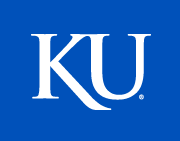Osher Lifelong Learning Institute

Courses
Science
Courses & Events
Butterflies, Birds and Bees
Instructor Bio: Kristen Baum is the director of Monarch Watch, senior scientist with the Kansas Biological Survey and professor in the Department of Ecology and Evolutionary Biology at the University of Kansas. Her research focuses on the effects of land use and management practices, and weather extremes on monarchs, native bees and other pollinators.
Victor Gonzalez earned his bachelor's degree in biology from the Universidad Nacional de Colombia in Bogotá and his doctorate in ecology and evolutionary biology from the University of Kansas. He completedhis postdoctoral research at the USDA Pollinating Insect-Biology, Management and Systematics Research Laboratory in Logan, Utah. Victor's research focuses on bee phylogeny and evolution, documenting patterns ofdiversity and investigating how bees respond to environmental stressors.
April 13-27, 2026, St Andrews Classroom

 Cart (0)
Cart (0)

